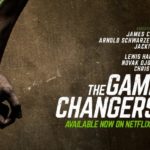Last Updated on June 3, 2023 by Ellen
(“Lyn” is me – Ellen. I wanted to try something different, and out came this nonfiction, pseudo ‘vignette’ post in the third person.)
Getting off the couch
Lyn hears the rain coming so she peddles faster in thick, humid air. She wants to deliver the groceries before everything gets wet. The wind picks up and pushes the rain sideways and there’s no escaping it. She pushes on because someone is waiting for her. Someone who needs help. A friend who needs a little money and some food. This friend has young children. Their needs got her off the couch after only one cup of coffee this morning.
She nears the meeting spot and stops the bike to walk it. The groceries are in the front basket, wrapped in an eco bag, which is wrapped in a plastic bag because of the rain, which is coming down much harder now. Lyn leaves the bike and dashes down a footpath to the beach. She makes it to a mangrove tree 50 feet from the shoreline. It doesn’t give much cover.
Noodles, canned meat, powdered drinks fortified with vitamins, cookies. Luxuries. She bought most of the groceries at a neighborhood sari sari, a convenience store. One of many that sells staples and junk food because local people cannot afford many trips into town. One of many Lyn shops at because she wants to help small businesses.
There is no produce in her donation bag this time. But there is some money and her friend can buy fresh veggies and fruit as needed. Last week, Lyn put vitamin syrup for the kids in the bag. ‘Syrup’ is how vitamins are sold for children at the common drug store chains. There are no Flintstone chewables like she had in 1970s America. The week before, she stuck in a large jar of peanut butter. Other weeks she brought eggs and whole chickens. She tries for protein and vitamins. The kids are young and thin.
Lyn is at the meeting spot five minutes early. She waits, soaked. Rainy season is unpredictable. This storm began after she left the apartment, and she hasn’t biked far. When her friend comes, they won’t linger. It’s not a morning for sitting on the beach. The dry couch and more coffee call to her.
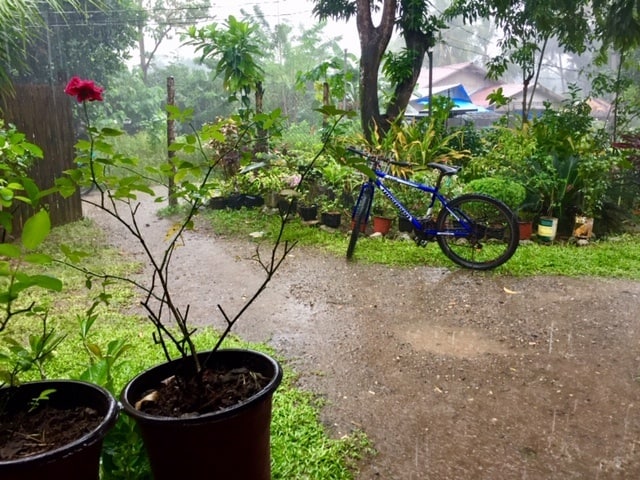
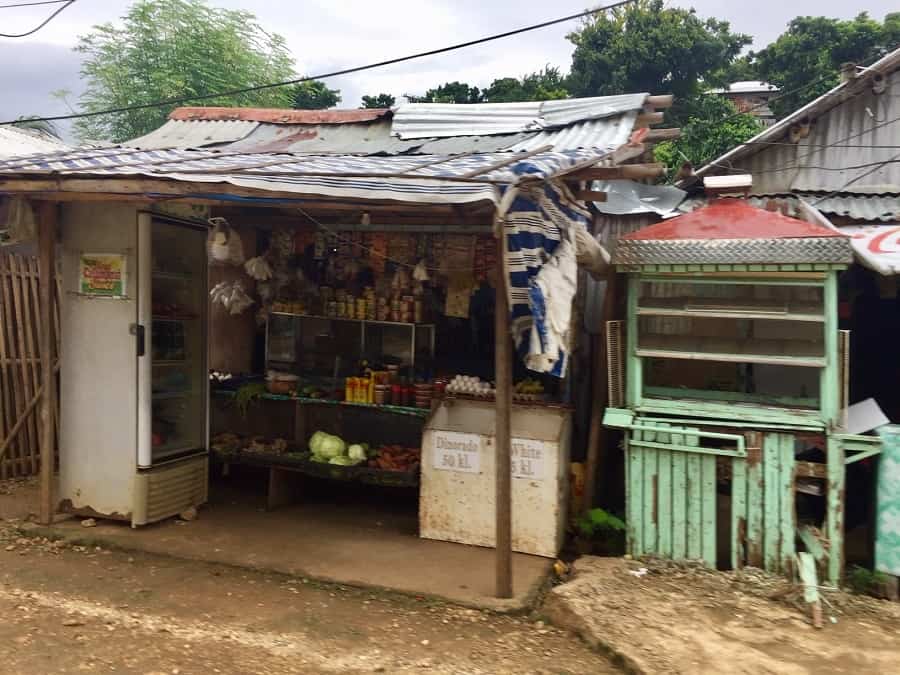
Ice cream near the mosque on laundry day
The mosque on Boracay Island is not easy to find if you don’t know which alley leads there. One can see the minaret from the main road – if you look behind the buildings at just the right moment.
Lyn is taking pictures near the mosque when she sees a weathered elderly man hauling a box with a rope strap over his shoulder. She asks what’s for sale because she knows he’s selling something. Everyone is selling something to survive the pandemic. The man tells her ice cream pops. He puts the box down and shows her the pops. She asks how much. Fifteen pesos each, he says. She knows that price is just for her, but she doesn’t care to haggle.
She waves to half a dozen boys nearby and points at the box. They jump and run over. Lyn sees them take three or four pieces each and stops them. Only one each, she says. Other kids hear the commotion and they come from nearby alleys and homes around the mosque. Everyone gets an ice cream pop. The kids are happy. The old man is happy. Lyn is happy.
Next she wanders through the neighborhood near the mosque, careful not to trip over water lines that lie above ground or bump into clothing hung to dry. It’s a good laundry day. Clothes will dry fast. She sees a woman haul up water from a well without a pump. The woman is strong and lifts up full buckets in a few pulls. Lyn has cursed hand washing laundry. She’s done it for 19 months – since the beginning of the pandemic.
The woman smiles, Lyn smiles back and moves closer to take a picture. She watches the strong woman dump a bucket of water into the wash bin and lower the pail again to get more water. The woman smiles again. Lyn thinks: Thank God I don’t have to haul water.
She leaves the woman to her laundry as she hears the echo of her dad saying: Things can always be worse.
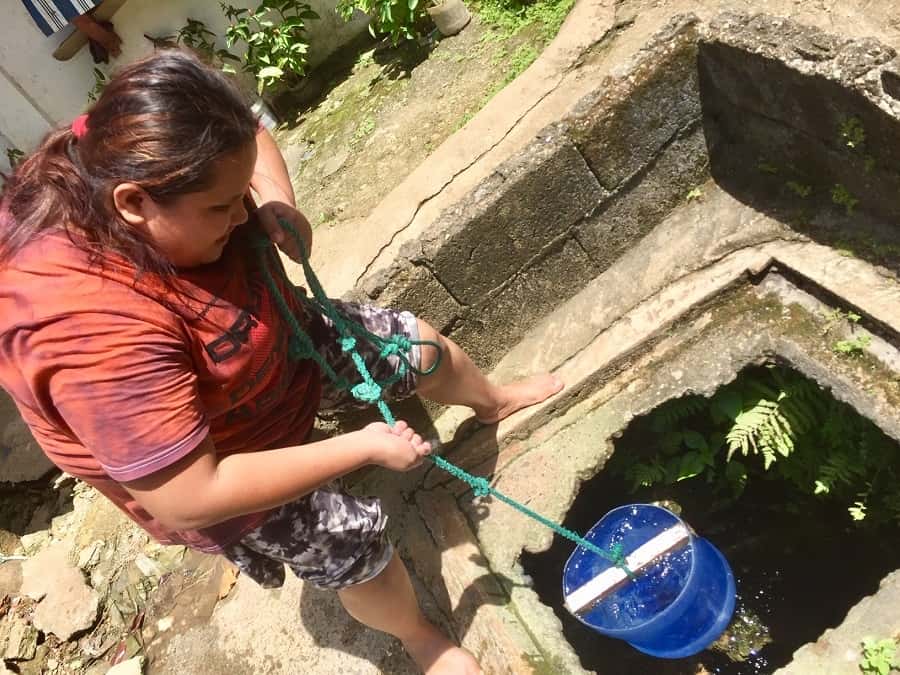
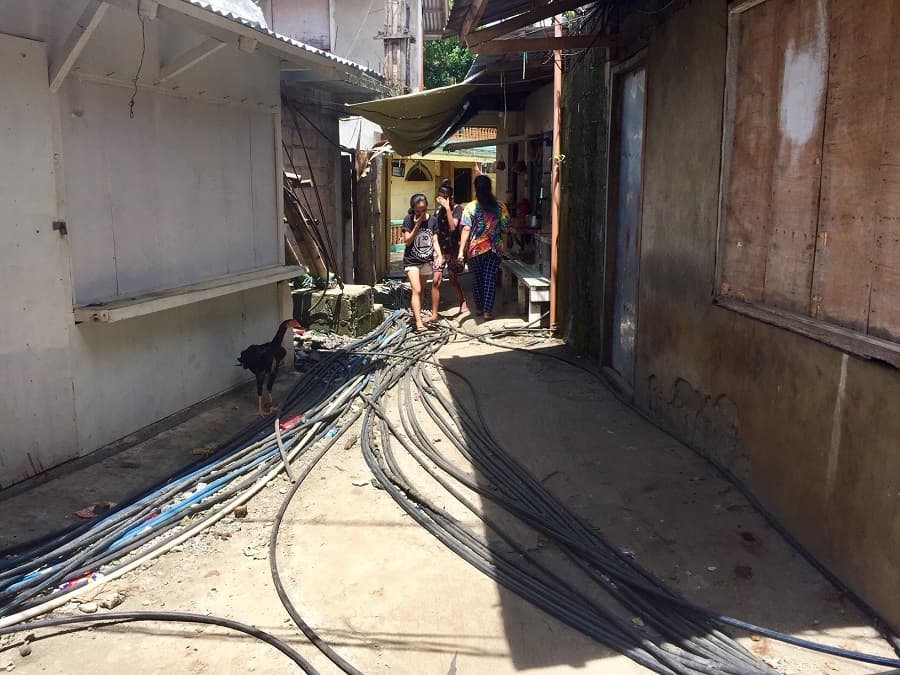
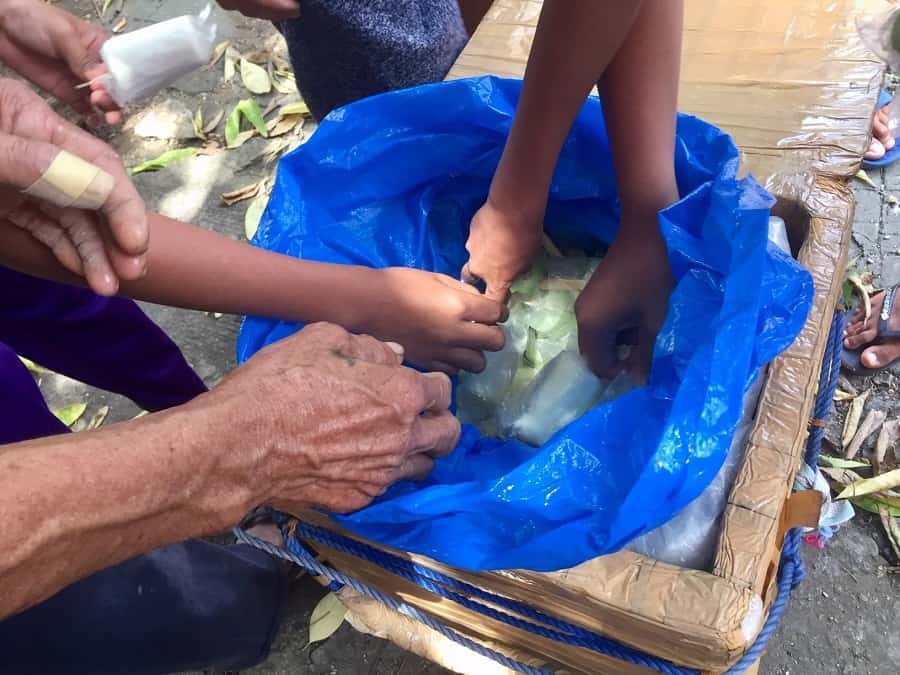
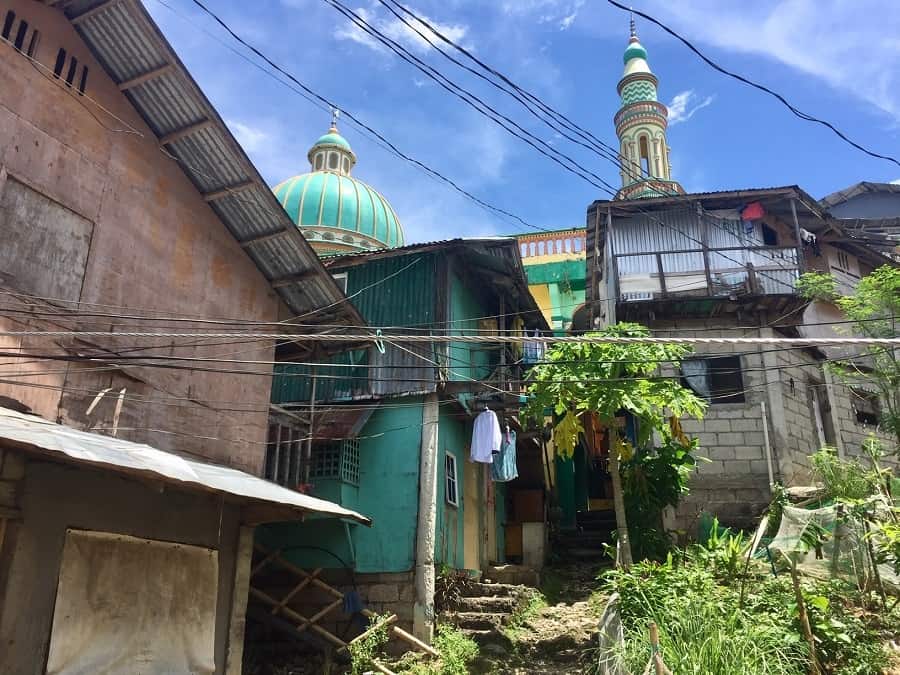
The tourists are coming
Rice fields, mountains, sari sari stores, fish stands, women carrying plastic bins with food for sale – maybe rice cakes or casaba wrapped in leaves for a few pesos. Lyn sees those sights and more from a tricycle – a Philippine taxi. When she gets to the port in Caticlan, she shows her ID and pays for the ferry ride to Boracay Island. There have been times during the pandemic when she’s had to wait 30 minutes for the ferry to fill up with passengers for the short ride across the bay. Today, the port is packed with domestic tourists from Manila.
She is about to board when she hears someone call her name. It’s a young man she knows who used to be a kite boarding instructor before the pandemic. He’s been out of steady work since the pandemic stopped international tourism. He is even thinner than the last time she saw him a few weeks ago.
He tells her, No work yet. Filipinos don’t buy lessons at the kite-boarding school. Only foreigners.
Hang in there, Lyn says. The foreign tourists will come back… someday.
On the ferry, a heavy Filipino woman sprays the air in front of her with some type of disinfectant. Lyn smells lemony fragrance. The woman puts away the spray gives the man next to her a sandwich. He slides his mask down under his chin to eat. The man must weigh 60 pounds more than the former kite board instructor.
On the island, Lyn walks the famous stretch of sand and sees people from Manila and other large cities enjoying their vacation with selfies and swims in water up to their chests. Visiting children fling sand while locals check for hidden treasure. A woman covered with long pants, long sleeves and gloves slowly moves a metal detector before each step. Suddenly she stops, kneels, and digs into a spot. Lyn walks over and watches as the woman uncovers a bottle cap. She pushes sand back into the hole with her socked foot.
Did you find anything of value today? Lyn is hopeful this enterprising lady already struck the jackpot. The woman says, Oh yes, but only five pesos and ten pesos. The American equivalent of 30 cents. Lyn tries to see the short woman’s face, but cannot. Her mask is pulled up high and her bucket hat covers the glint of sadness that must surely be underneath. Next time, Lyn says.
For the first time in more than a year, Lyn waits two full minutes for a tricycle to pick her up. This is good, she thinks, because drivers are earning money. An empty trike stops and she tells the driver she’s going to the port. On the way, he slows down for potential fares, but there are no takers.
She gets out at the port, pays and tips him, and tells him to hang in there. The tourists are here, and more will be coming.
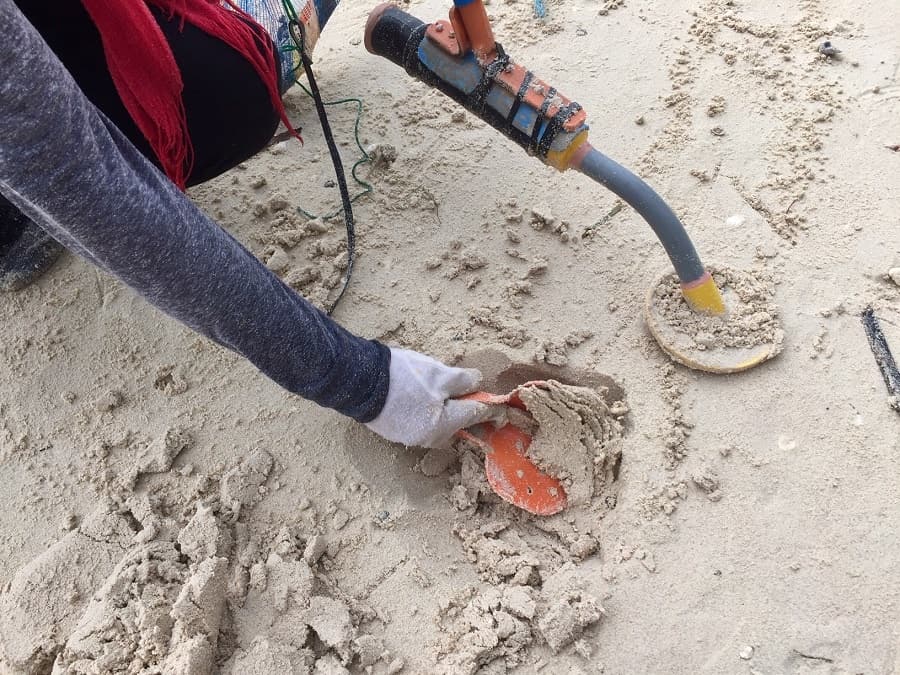
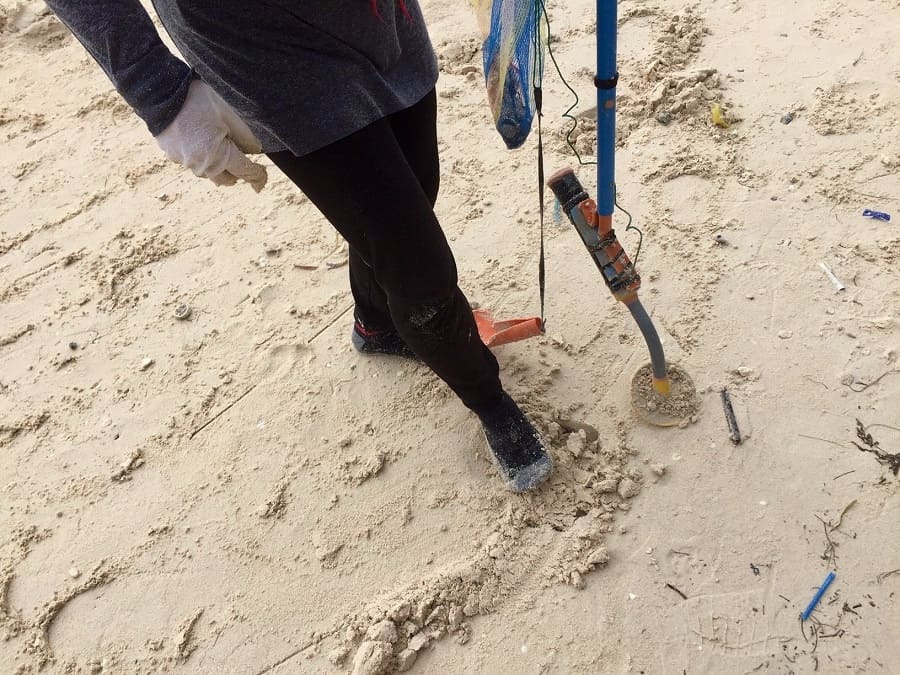
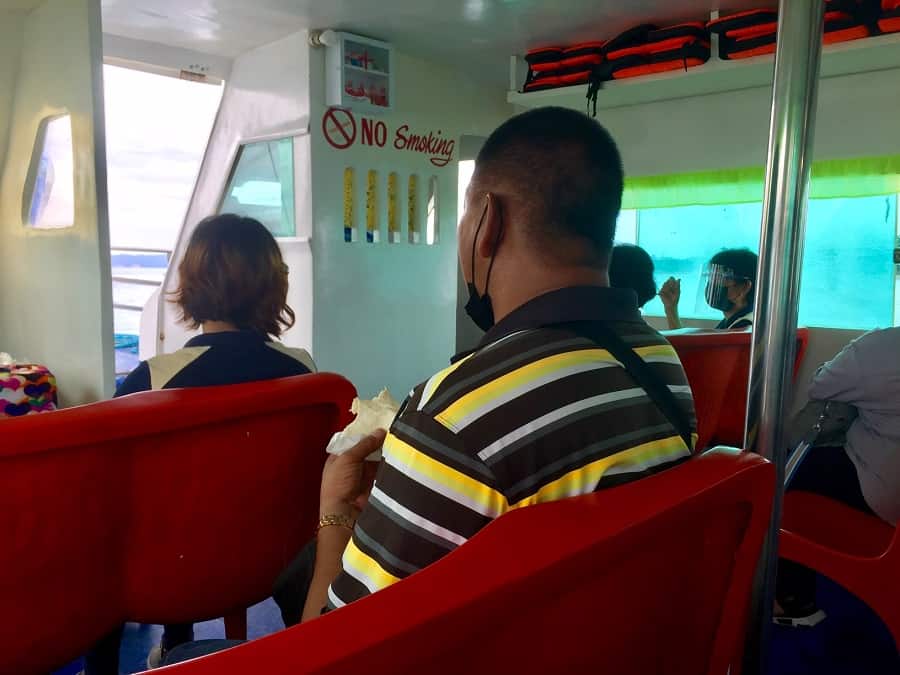
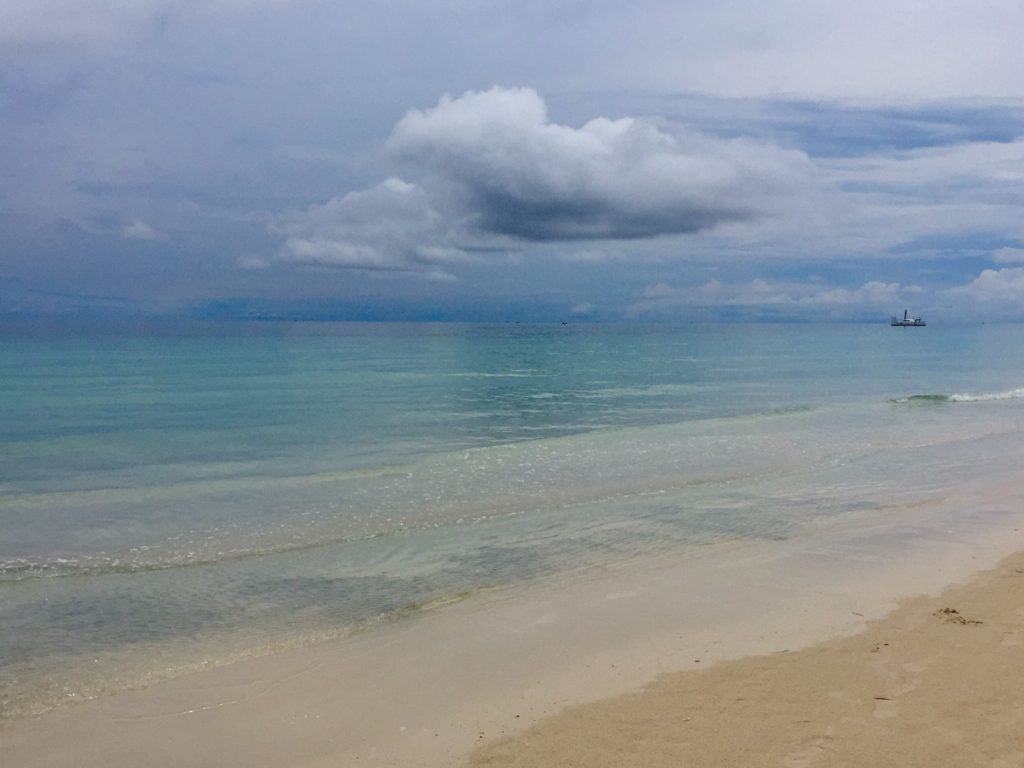
Thanks for reading, “3 days, 3 vignettes.”
You might also like other (more traditional travel blog) posts:




